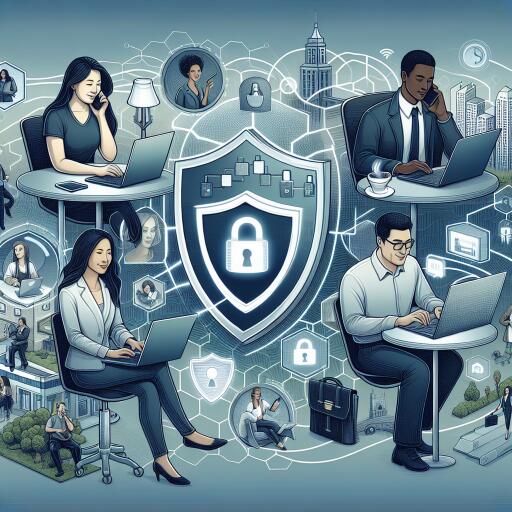Adapting Your Cybersecurity Strategy for Remote Teams
The digital age has ushered in a new era of the workplace environment, where remote work is increasingly becoming the norm across various industries. This shift towards flexible working arrangements not only provides employees with a better work-life balance but also offers businesses operational and financial advantages. However, along with these benefits comes the heightened risk of cyber threats aimed at exploiting weaker security measures that are often associated with remote work setups.
To safeguard their operations and sensitive data, organizations must embrace comprehensive and proactive cybersecurity strategies tailored to the needs of a decentralized workforce.
Identifying the Cybersecurity Risks
Transitioning to a remote work environment significantly expands the cyberattack surface, exposing businesses to new vulnerabilities. The lack of visibility and awareness among remote teams can lead to critical security issues:
- Data Breaches: With limited oversight, there’s a greater chance of unauthorized access leading to significant data breaches.
- Phishing and Social Engineering: Remote employees may be more susceptible to sophisticated phishing attacks and social engineering tactics due to isolated working conditions.
- Device and Network Security: The use of personal devices and networks, which may lack strong security measures, poses a substantial risk.
- Vendor Management: Reliance on third-party vendors can introduce security vulnerabilities, especially if these vendors do not adhere to stringent security measures.
Formulating an Effective Cybersecurity Strategy
To mitigate the risks associated with remote work, businesses must implement robust cybersecurity practices:
Establish Clear Security Standards: Defining and enforcing security policies is crucial. Providing employees with updated protocols and thorough training ensures they are equipped to manage their tasks securely.
Utilize VPNs and Two-Factor Authentication: VPNs offer a secure way to access the network remotely, while two-factor authentication adds an extra layer of security, significantly reducing the chances of unauthorized access even in the event of compromised credentials.
Secure Endpoints: With an increase in the number of devices accessing company data, it’s critical to ensure all devices have the latest antivirus software and are protected by firewalls.
Implement Data Encryption and Backups: Encrypting data and maintaining regular backups in secure locations are essential, especially for businesses in regulated sectors, to build and maintain trust with clients and partners.
Develop an Incident Response Plan: Preparing for the worst is a vital aspect of cybersecurity. A comprehensive incident response plan, regularly tested and updated, is indispensable for swiftly managing cyber incidents and minimizing damage.
Ensuring Your Remote Workforce Is Secure
Protecting a business with a remote workforce from cybersecurity threats requires an active and well-thought-out strategy. By understanding the risks and implementing the measures described, you can create a secure digital environment. This not only protects your organization’s data but also supports the productivity and well-being of your remote employees.
The evolution towards decentralized workforces doesn’t have to compromise security. With the correct approach, businesses can enjoy the flexibility remote work offers while maintaining a strong defense against the ever-growing threat landscape.










